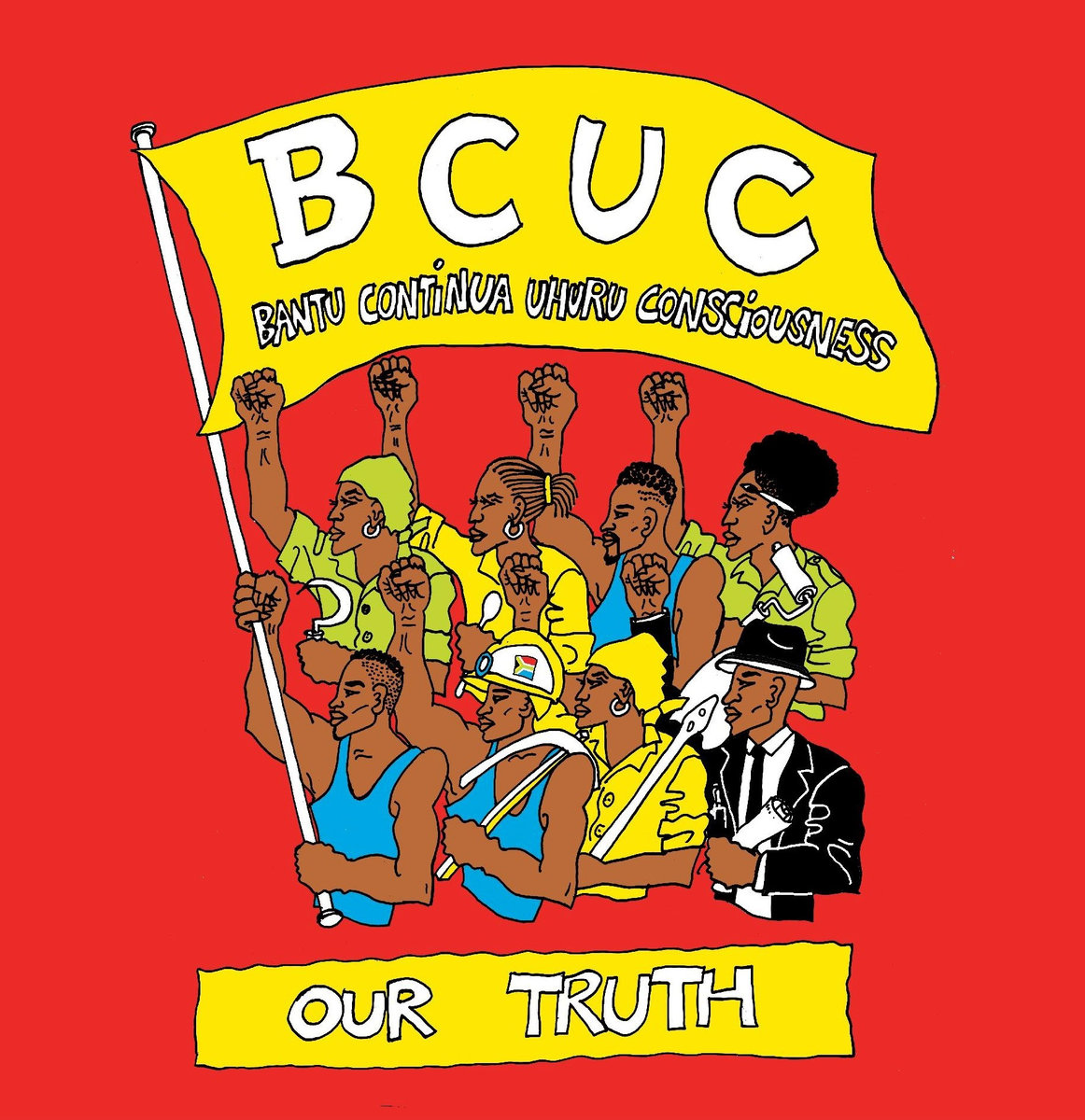“Yeah, 2016, the year of indigenous rock sound.” Thus begins the 17-minute "Asazani," the second track on Our Truth, a mesmerizing, passionate, and genre-defying album from South African seven-piece group Bantu Continua Uhuru Consciousness (BCUC). Their sound is rooted in local musical traditions and features only the slightest touch of electronics, yet remains utterly contemporary and serves as the vehicle for an energizing message of political and spiritual liberation. “It’s nothing like pop music, but it just grows on you,” they proclaim five minutes in, with the self-confidence of a band that knows they have something to say and are ready to be heard.
On Our Truth, the band performs three songs which escape any box that we might hope to put them in, with fluctuating tempos and a combination of overlapping chants, raps, and hymn-like vocal melodies. Although this is their first commercial production, BCUC emerged 12 years ago out of a community center workshop. Their unity as a band is immediately audible, and they demonstrate a mastery over dynamic progression that is surely a product of over a decade of jam sessions, studio recordings, and tours from South Africa to the Netherlands. With punk-rock attitude and energy, BCUC combines conscious spoken-word verses reminiscent of black American proto-rap artists such as the Last Poets or Gil Scott Heron with trance-like, repetitive chants which have a spontaneity remarkable for a studio recording. The instrumentation is simple, driven by a rich and closely knit mix of vocals and percussion atop a frenzied electric bass. The textures that they create with such a lineup are varied and moving, with incantations in Zulu, Sesotho, and English and overlapping patterns from congas, tambourines, and traditional whistles and horns.
Comparisons with Fela Kuti come to mind, not because of the specific rhythmic patterns nor the ensemble’s sound as a whole, but because of the group’s ability to maintain energy throughout songs which last as long as 20 minutes and carry deep and aggressive reflections on and demands for social justice. BCUC are from Soweto, the township of Johannesburg central to the anti-apartheid struggle of the 1970s and '80s. The band channels the rebellious nature of the area with a sound and a message that are contemporary and urgent. Their readiness to confront social issues and identity politics in a personal and complex manner produces a statement which resonates as much in the South African “rainbow nation” as it does in the United States or in Europe.
Our Truth opens with "Yinde," which means “the road” and reflects upon the ongoing struggle that remains to be fought for a fairer South Africa. In "Asazani" (“We don’t know one another”), they question what it means to exist in a multiracial society and how to realistically bring people closer together, drawing upon their experiences as Sowetan artists who now tour Europe and collaborate with musicians from diverse cultures and countries far from the band’s home. They remind their listeners that “We will never lose the black. Even if we want to lose the black, the world will never afford us the opportunity to lose the black.”
Steering away from any type of “colorblind” worldview, BCUC make explicit the struggle that remains in order to move towards a more just society, while maintaining a message of unity and humanity. Perhaps what is most compelling about what could otherwise become a contrived socio-political message is the band’s emotional honesty, which manifests itself most powerfully halfway through "Asazani" with an expletive explosion of frustration, a tension resolved a few minutes later with a reconciliatory statement: “As harsh as we might be, our harshness comes from love. [...] Our harshness comes from dedication to the mission and the lecture at hand.” The clarity of BCUC’s mission is of a rare quality. Our Truth is an album by a band that has had the patience to develop its voice and is now poised to reach a global audience.
Having self-produced several recordings over the past years, BCUC put forth this first commercial album on Nyami Nyami Records. The young French label launched in 2015 with the posthumous release of “Zvichapera”, a mesmerizing song by the great Zimbabwean-American singer Chiwoniso. Focusing on southern African music that is “off the beaten track,” they’ve since released two compilations of South African library music from the early 1980s, and a new collaboration between Zimbabwean mbira master Jacob Mafuleni and French electronic producer Gary Gritness. Our Truth builds upon this short but consistently high-quality catalog from a label which is providing a home for music which is left of center but rooted in tradition.
Our Truth was released digitally, on CD, and on 12’’ vinyl in November 2016, and is available directly from Nyami Nyami Records.









